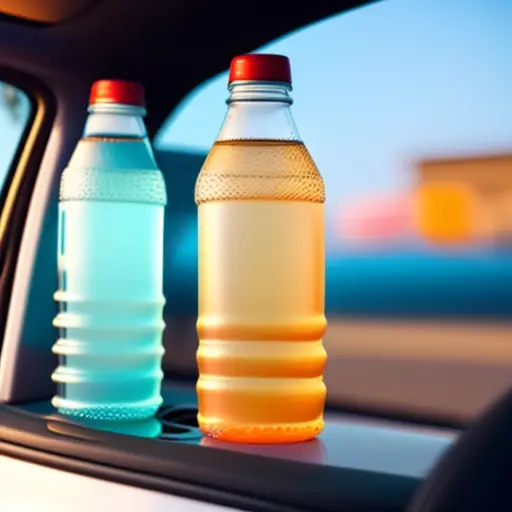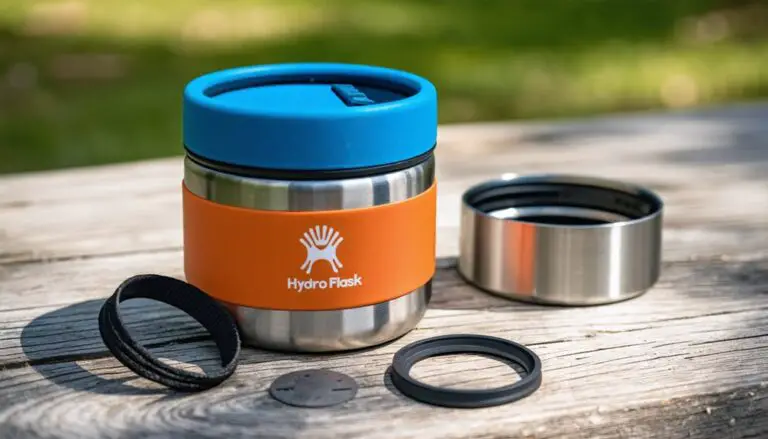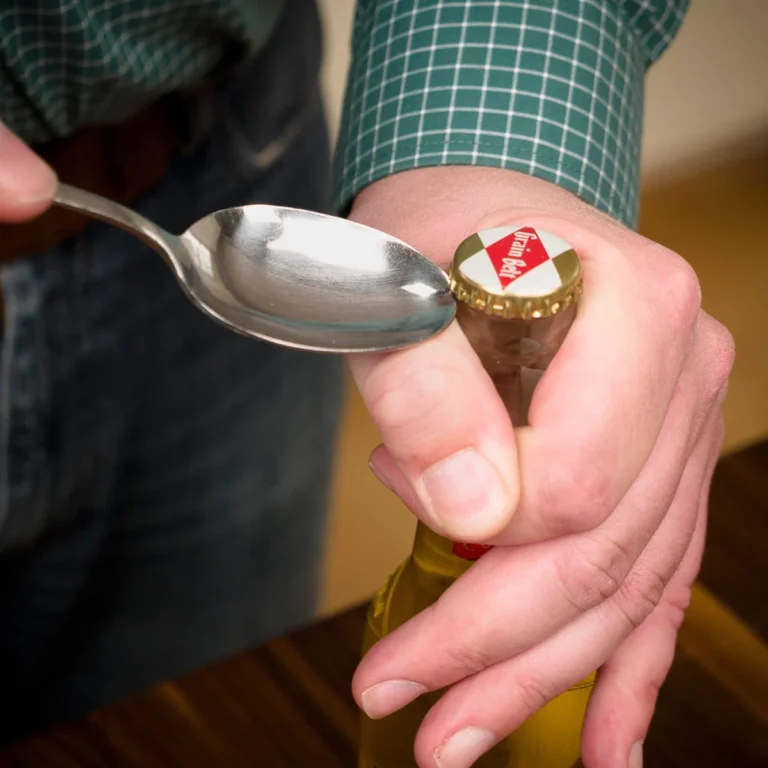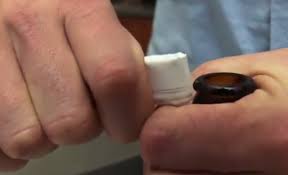Leaving water bottles in a hot car has long been a topic of debate, with many questioning whether it is safe to drink from them after extended exposure to high temperatures. The concern arises from the belief that the heat can cause harmful chemicals to leach into the water, posing potential health risks. However, it is essential to examine the science behind this claim and consider the facts before drawing any conclusions.
Effects of Heat on Plastic Bottles
How heat affects plastic bottles
It is commonly known that leaving plastic bottles in a hot car can have negative effects on the bottle itself. When exposed to high temperatures, the plastic can start to degrade, leading to changes in its physical properties. Here are some ways heat can affect plastic bottles:
1. Weakening of the bottle: The heat can cause the plastic to become weak and brittle, making it more prone to cracking or breaking.
2. Leaching of chemicals: Heat can cause certain chemicals, such as phthalates and bisphenol A (BPA), to leach out of the plastic and into the water. These chemicals are known to be potentially harmful to human health.
3. Alteration of taste and odor: When plastic bottles are exposed to heat, they can release substances that alter the taste and odor of the water. This can make the water unpleasant to drink.
Potential release of harmful chemicals
One of the main concerns when it comes to drinking from plastic bottles that have been left in a hot car is the potential release of harmful chemicals. Studies have shown that heat can cause the release of chemicals like phthalates and BPA from plastic bottles. These chemicals are known to have potential health risks, including hormone disruption and reproductive problems. While the extent of the risk might vary depending on factors such as the type of plastic used and the duration of heat exposure, it is generally advisable to avoid drinking from plastic bottles that have been exposed to high temperatures. Instead, it is recommended to opt for bottled water that has been stored in a cool and shaded place. It is also important to note that reusing plastic bottles can increase the risk of chemical leaching, so it is recommended to use reusable water bottles made from materials like stainless steel or glass.
Bottled Water Safety Guidelines
Recommendations from manufacturers and regulatory bodies
When it comes to the safety of drinking water from unopened bottles that have been left in a hot car, manufacturers and regulatory bodies have provided some guidelines to consider:
1. Check the packaging: Before consuming the water, examine the packaging for any signs of damage, such as bulging or leaks. If the packaging appears compromised, it is best to discard the bottle.
2. Follow expiration dates: Bottled water typically has an expiration date printed on the packaging. It is advisable to consume the water before the indicated date to ensure its freshness and safety.
3. Store properly: The hot temperatures in a car can potentially impact the quality and safety of bottled water. To maintain the integrity of the water and avoid degradation, it is best to store the bottles in a cool, dry place.
Importance of storing bottled water properly
Proper storage of bottled water is crucial to maintaining its safety and quality. While leaving a sealed bottle of water in a hot car may not necessarily render it harmful, there are a few reasons why it is recommended to store it properly:
1. Plastic leaching: When exposed to high temperatures, the plastic bottle may release chemicals into the water. While the levels may not be harmful, it is best to minimize the risks by storing the bottles in a cool environment.
2. Bacterial growth: Hot temperatures can create an environment conducive to bacterial growth. While the chance of contamination in sealed bottles is low, storing the water in a cool place can help inhibit any potential growth.
3. Taste and quality: Extreme heat can affect the taste and quality of the water over time, leading to a less enjoyable drinking experience.
It is important to note that these guidelines are general recommendations and may vary depending on the specific brand and type of bottled water. It is always a good idea to consult the manufacturer’s instructions or contact them directly for more information on the storage and safety of their products.
Overall, while it may be tempting to consume water from unopened bottles left in a hot car, it is advisable to store them properly to ensure the highest level of safety, quality, and enjoyment.
Risks of Drinking from Hot Bottles
Potential health hazards
Drinking water from unopened bottles left in a hot car can pose potential health hazards due to the following reasons:
1. Bisphenol-A (BPA) leaching: When the plastic in the bottles is exposed to high temperatures, there is a risk of chemicals, such as Bisphenol-A (BPA), leaching into the water. BPA is a harmful substance that has been associated with various health issues, including hormone disruption, reproductive problems, and an increased risk of certain cancers.
2. Increased bacterial growth: The heat in the car can create an ideal environment for bacterial growth in the water. If the water has been sitting in a hot car for an extended period, there is a higher likelihood of harmful bacteria multiplying, which can lead to gastrointestinal issues and other infections.
Contamination risks
There are also contamination risks associated with drinking water from hot bottles left in a car:
1. Chemicals from the bottle: The heat can cause the plastic bottles to degrade, potentially releasing chemicals into the water. These chemicals may include phthalates, which are also harmful substances that can disrupt hormone balance and have been linked to various health problems.
2. Mold and microorganisms: When exposed to heat, the moisture inside the bottle can create a favorable environment for the growth of mold and other microorganisms. Drinking water that has been contaminated with mold or bacteria can cause gastrointestinal issues and other health problems.
It is important to note that the risks mentioned above are associated with the water being exposed to high temperatures for an extended period, such as in a hot car. However, if the water bottles have been stored in a cool place and only briefly exposed to heat, the risks may be significantly reduced.
To ensure the safety of drinking water, it is always recommended to store water bottles in a cool and dry place, away from direct sunlight and extreme temperatures. If you have any concerns about the safety of the water, it is best to discard it and opt for fresh, properly stored water instead.
BPA and Other Chemicals
Understanding the presence of BPA in plastic bottles
Bisphenol A (BPA) is a chemical compound commonly found in plastic products, including water bottles. BPA is used in the production of certain types of plastic, such as polycarbonate, which gives the bottles durability and strength. However, there has been growing concern about the potential health risks associated with BPA exposure.
It is important to note that BPA is not present in all plastic water bottles. Many manufacturers now produce BPA-free bottles, using alternative materials that are considered safe for use. These bottles are labeled as “BPA-free” and are readily available in the market.
Potential health effects
Several studies have suggested a possible link between BPA exposure and certain health effects. These include:
1. Hormonal Disruption: BPA has been found to mimic estrogen, a hormone that plays a crucial role in regulating various bodily functions. Exposure to BPA may disrupt hormonal balance and lead to reproductive disorders, such as reduced fertility and abnormal development of reproductive organs.
2. Developmental Issues: There is evidence to suggest that prenatal and early-life exposure to BPA may affect the development of the brain and behavior in children. Research has linked BPA exposure to an increased risk of neurodevelopmental problems, such as attention deficit hyperactivity disorder (ADHD) and autism spectrum disorders.
3. Increased Risk of Chronic Diseases: Some studies have found associations between BPA exposure and an increased risk of certain chronic diseases, including cardiovascular diseases, diabetes, and obesity. However, more research is needed to fully understand the mechanisms behind these associations.
4. Safety Precautions: To minimize potential exposure to BPA and other harmful chemicals, it is recommended to follow these safety precautions:
- Opt for BPA-free water bottles: Choose bottles labeled as BPA-free to ensure they do not contain this chemical.
- Avoid heating plastic bottles: Do not expose plastic water bottles to high temperatures, such as leaving them in a hot car. Heat can accelerate the release of chemicals from the plastic into the water.
- Use stainless steel or glass alternatives: Consider using stainless steel or glass water bottles as alternatives to plastic, as these materials are generally considered safe and do not leach harmful chemicals.
For more detailed information about BPA and its potential health effects, you can reference this Wikipedia article on BPA. It is always important to prioritize your health and make informed choices when it comes to the products you use and consume.
Best Practices for Storing Bottled Water
When it comes to storing bottled water, it’s important to follow proper guidelines to ensure the safety and quality of the water you consume. Here are some best practices for storing bottled water:
Proper storage methods
- Keep it cool: Store your bottled water in a cool, dry place away from direct sunlight and extreme temperatures. The ideal temperature for storing bottled water is around 50 to 70 degrees Fahrenheit (10 to 21 degrees Celsius).
- Avoid exposure to chemicals: Keep your bottled water away from any toxic chemicals or substances that could contaminate the water. Store it in a location where it won’t come into contact with cleaning products, gasoline, or other hazardous materials.
- Use a clean storage area: Make sure the area where you store your bottled water is clean and free from any dirt, dust, or contaminants. Avoid storing it near areas where chemicals or cleaning agents are stored.
- Keep it away from strong odors: Bottled water can absorb odors from strong-smelling substances, so it’s best to store it away from foods with strong odors or any items that may release strong odors.
Avoiding heat exposure
Exposing bottled water to high temperatures, such as leaving it in a hot car, can affect the quality and safety of the water. Here’s why you should avoid drinking from unopened water bottles left in a hot car:
- Potential chemical leaching: Bottles made of certain types of plastic, such as polyethylene terephthalate (PET), can release chemicals when exposed to high temperatures. This can result in the transfer of unwanted substances into the water, potentially compromising its safety.
- Bacterial growth: Warm temperatures provide an ideal environment for bacteria to grow. If bottled water is exposed to heat, it can become a breeding ground for bacteria, posing a health risk if consumed.
- Degradation of plastic: High temperatures can cause plastic bottles to degrade, which may result in the release of harmful compounds into the water. Consuming water from a degraded plastic bottle can be hazardous to your health.
To ensure the safety and quality of your bottled water, it’s best to store it in a cool, dry place and avoid exposing it to extreme temperatures. Proper storage practices will help maintain the integrity of the water and ensure that it remains safe to drink.
For more information on the proper storage of bottled water, you can refer to this resource.
Alternatives to Plastic Bottles
Evaluating other options for drinking water on-the-go
If you’re concerned about the safety of drinking water from unopened plastic bottles left in a hot car, there are alternative options to consider. These alternatives can help you stay hydrated while also reducing your environmental impact. Here are a few options to explore:
1. Stainless Steel Bottles: Stainless steel bottles are a popular choice for reusable water containers. They are durable, easy to clean, and can keep your water cool for hours. Look for bottles made from food-grade stainless steel to ensure safety.
2. Glass Bottles: Glass bottles are another eco-friendly option for carrying water. They are reusable, free from harmful chemicals, and do not retain any flavors or odors. However, glass bottles can be heavier and more fragile than other options.
3. Collapsible Bottles: Collapsible bottles are lightweight and compact, making them perfect for travel. These bottles can be easily folded or rolled up when empty, saving space in your bag. They are typically made from BPA-free materials.
4. Filtered Water Bottles: If you’re concerned about water quality, consider using a filtered water bottle. These bottles have built-in filtration systems that can remove impurities and improve the taste of tap water.
5. Hydration Packs: Hydration packs are backpacks or waist packs that come with a built-in water reservoir and a drinking tube. They are popular among outdoor enthusiasts and provide hands-free access to water.
By considering these alternatives, you can find a suitable option for drinking water on-the-go while minimizing your reliance on single-use plastic bottles. Remember to regularly clean and maintain your reusable bottles to ensure their safety and longevity.
Myth vs. Fact: Debunking Common Misconceptions
Addressing misconceptions about drinking hot water from plastic bottles
There is a common misconception that drinking water from unopened plastic bottles left in a hot car can be harmful to your health. However, this belief is not entirely accurate. Let’s address some of the misconceptions surrounding this topic:
Myth: Drinking water from a plastic bottle that has been left in a hot car can release harmful chemicals into the water.
Fact: Most plastic water bottles that are sold commercially are made from polyethylene terephthalate (PET) or high-density polyethylene (HDPE), which are considered safe for storing water. These materials are designed to withstand moderate temperatures without leaching harmful chemicals into the water. According to the International Bottled Water Association, there is no scientific evidence to support the claim that drinking water from these bottles poses a significant health risk.
It’s important to note that extreme temperatures, such as those found in a car on a hot day, can cause the plastic to degrade over time. This degradation can lead to the release of small amounts of chemicals, but the levels are generally well below the safety limits set by regulatory agencies.
However, it’s still a good practice to avoid leaving plastic water bottles in a hot car for extended periods, as it can affect the taste and quality of the water. The heat can cause the plastic to break down and release unpleasant odors or flavors into the water, making it less enjoyable to drink.
In summary, while drinking water from a plastic bottle that has been left in a hot car is generally safe, it is advisable to store bottled water in a cool and shaded place to maintain its quality and taste. If you have concerns about the safety of drinking water from plastic bottles, you may consider using reusable water bottles made from stainless steel or glass, which are known to be safe alternatives.
Making informed decisions about drinking water from unopened bottles in hot cars
In conclusion, it is advisable to exercise caution and make informed decisions when it comes to drinking water from unopened bottles that have been left in a hot car. Here are a few key points to keep in mind:
- Health Risks: Drinking water that has been exposed to high temperatures can potentially lead to the release of harmful chemicals from the plastic bottle. These chemicals, such as BPA, can have negative health effects when consumed in high amounts.
- Bacterial Growth: Hot temperatures create an ideal environment for bacterial growth. If the bottle has been left in a hot car for an extended period, it is possible for bacteria to multiply, making the water unsafe to drink.
- Use Your Senses: Before consuming water from an unopened bottle in a hot car, use your senses to assess its safety. Look for any changes in color, odor, or taste. If the water appears cloudy, smells strange, or has an off taste, it is best to avoid drinking it.
- Play It Safe: When in doubt, it is better to err on the side of caution and choose not to drink water from a bottle that has been left in a hot car. Opt for fresh and properly stored water to ensure your health and well-being.
It is important to note that these cautions apply specifically to water bottles left in hot cars. When properly stored and consumed before their expiration dates, unopened water bottles are generally safe to drink.
To learn more about the risks and considerations associated with drinking water from unopened bottles left in hot cars, consult reputable sources such as CDC or Mayo Clinic. Keep your health and safety a priority when making decisions about consuming water from questionable sources.




